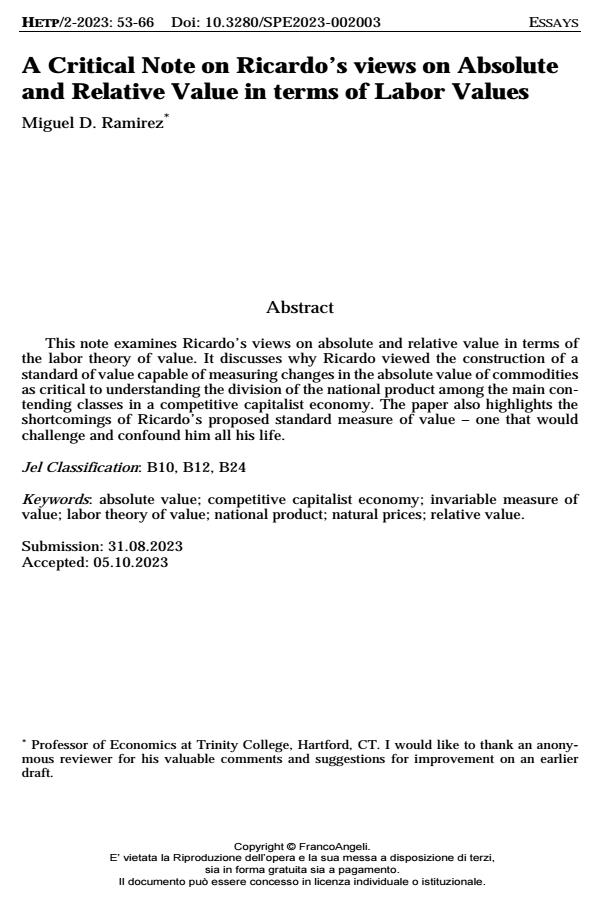A Critical Note on Ricardo’s views on Absolute and Relative Value in terms of Labor Values
Journal title HISTORY OF ECONOMIC THOUGHT AND POLICY
Author/s Miguel D. Ramirez
Publishing Year 2024 Issue 2023/2
Language English Pages 14 P. 53-66 File size 62 KB
DOI 10.3280/SPE2023-002003
DOI is like a bar code for intellectual property: to have more infomation
click here
Below, you can see the article first page
If you want to buy this article in PDF format, you can do it, following the instructions to buy download credits

FrancoAngeli is member of Publishers International Linking Association, Inc (PILA), a not-for-profit association which run the CrossRef service enabling links to and from online scholarly content.
This note examines Ricardo’s views on absolute and relative value in terms of the labor theory of value. It discusses why Ricardo viewed the construction of a standard of value capable of measuring changes in the absolute value of commodities as critical to understanding the division of the national product among the main contending classes in a competitive capitalist economy. The paper also highlights the shortcomings of Ricardo’s proposed standard measure of value – one that would challenge and confound him all his life.
Keywords: absolute value; competitive capitalist economy; invariable measure of value; labor theory of value; national product; natural prices; relative value.
Jel codes: B10, B12, B24
Miguel D. Ramirez, A Critical Note on Ricardo’s views on Absolute and Relative Value in terms of Labor Values in "HISTORY OF ECONOMIC THOUGHT AND POLICY" 2/2023, pp 53-66, DOI: 10.3280/SPE2023-002003